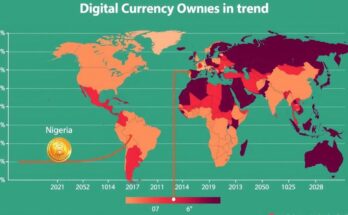Brazil and Argentina have partnered with Bolivia’s YPFB to transport natural gas from Argentina’s Vaca Muerta shale formation, addressing regional supply challenges. The agreement focuses on utilizing Bolivia’s pipeline network and enhancing gas access to Brazilian consumers while positioning Argentina as a gas exporter. Additional developments include TotalEnergies’ agreements with YPFB and strategic mergers aimed at bolstering LNG production.
Brazil’s Grupo Matrix Energia and Argentina’s TotalEnergies have formalized an agreement with Bolivia’s YPFB to facilitate the transportation of natural gas sourced from Argentina’s Vaca Muerta shale reserves. This pact, initially inked on November 22, emphasizes utilizing Bolivia’s established infrastructure to navigate the region’s flux in supply dynamics. By leveraging YPFB’s extensive 1,000 km pipeline network, this collaboration is set to enable Argentine gas access to Brazilian markets, thereby reinforcing the energy integration within South America. As Bolivia grapples with declining gas exports, both Argentina and Brazil are actively pursuing alternative supply strategies. While Argentina, possessing the second-largest shale gas reserves worldwide, aims to enhance its status as a gas exporter, it is still in the process of establishing the requisite pipeline configurations and the economic frameworks necessary for effective tariff negotiations. Moreover, TotalEnergies and Matrix Energia have also engaged in a sales agreement, allowing YPFB’s transportation sector to manage the natural gas stream efficiently. YPFB has remarked that TotalEnergies has successfully acquired the necessary permits to export gas from the Austral and Neuquen Basins towards Brazil. Meanwhile, in a strategic expansion, YPF is reportedly merging its liquefied natural gas project with efforts from Pan American Energy Group and Golar LNG, anticipated to elevate production capacities from Vaca Muerta significantly and fortify Argentina’s standing in the global LNG arena. Additionally, YPF is working towards securing $2 billion in financing for its Vaca Muerta Sur pipeline initiative, which is projected to enhance the transport of oil to a coastal export terminal by mid-2025.
The transportation and exportation of natural gas in South America are undergoing significant transformations, particularly between Brazil, Argentina, and Bolivia. Bolivia’s YPFB, once a principal gas producer, faces diminishing export volumes, necessitating collaborative projects with neighboring countries to sustain its energy relevance. Argentina’s Vaca Muerta formation is rich in shale gas resources, positioning the country as a competitive gas supplier, albeit with ongoing infrastructure developments needed to support large-scale exportation. As the regional energy market evolves, these partnerships highlight a strategic shift towards integrated energy solutions in response to fluctuating demands and resource availability.
In conclusion, the partnership between Brazil, Argentina, and Bolivia’s YPFB marks a crucial step towards bolstering natural gas transportation in South America. With Argentina aiming to export its substantial shale gas reserves, enhanced by the development of infrastructure and strategic collaborations, the region appears well-positioned for potential gains in energy market stability and supply. Furthermore, YPFB’s initiatives to manage transportation and create synergies with prominent industry players reflect an ongoing commitment to revitalizing Bolivia’s energy sector amid challenges.
Original Source: www.offshore-technology.com




